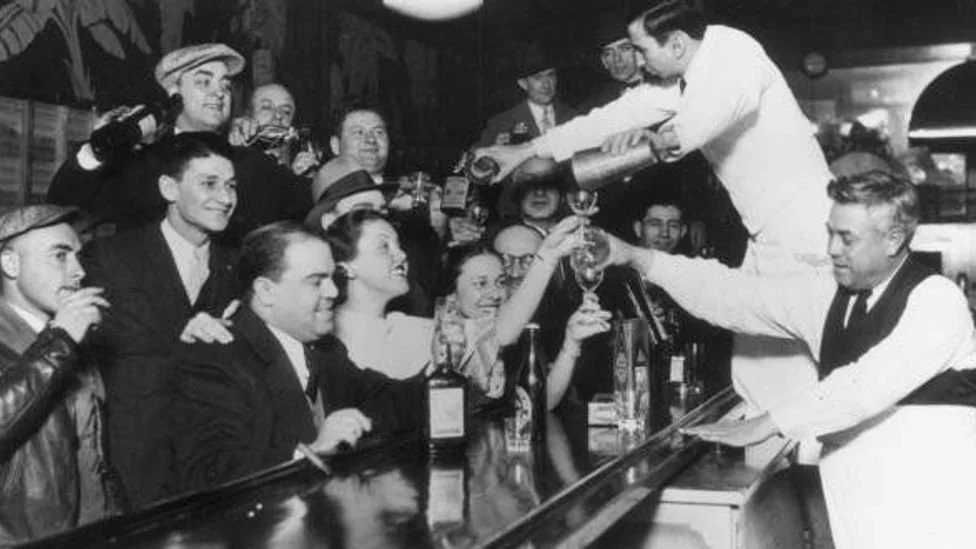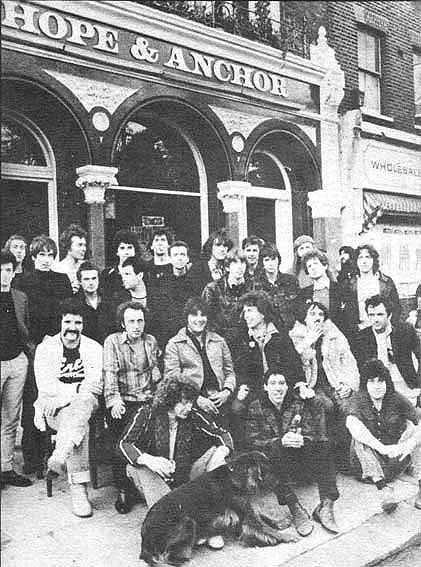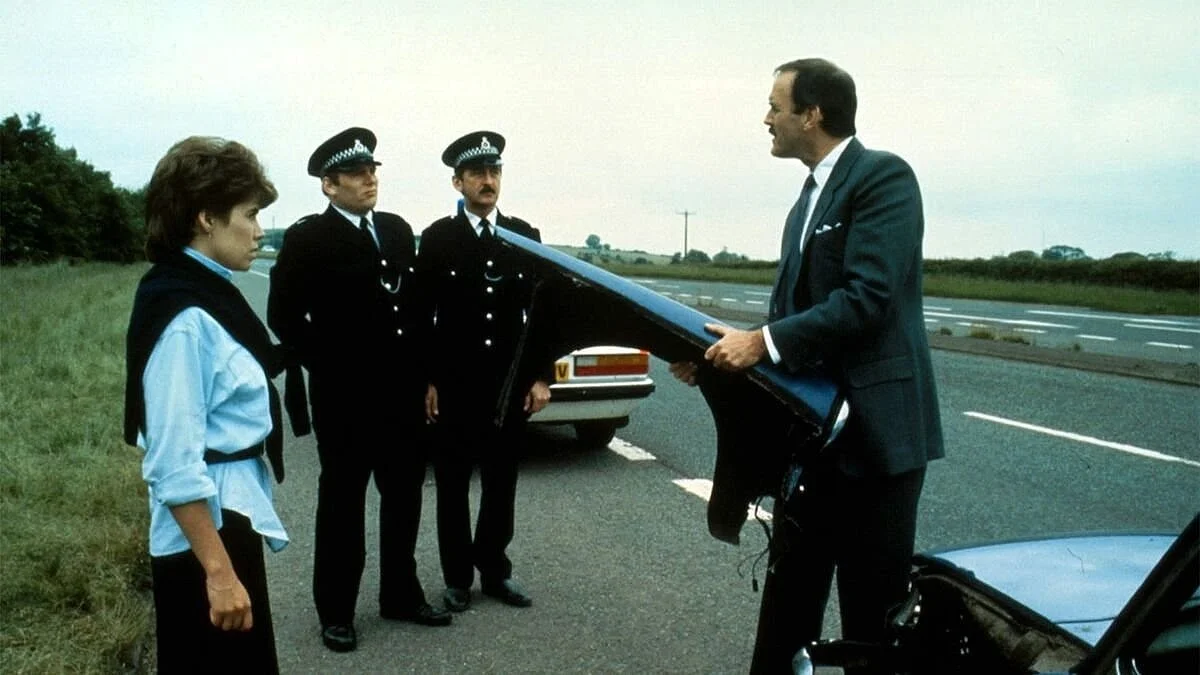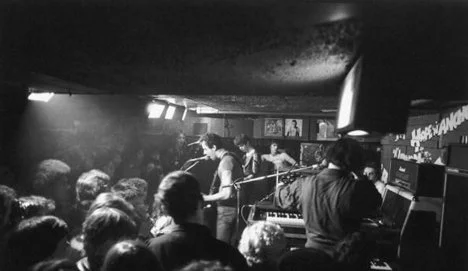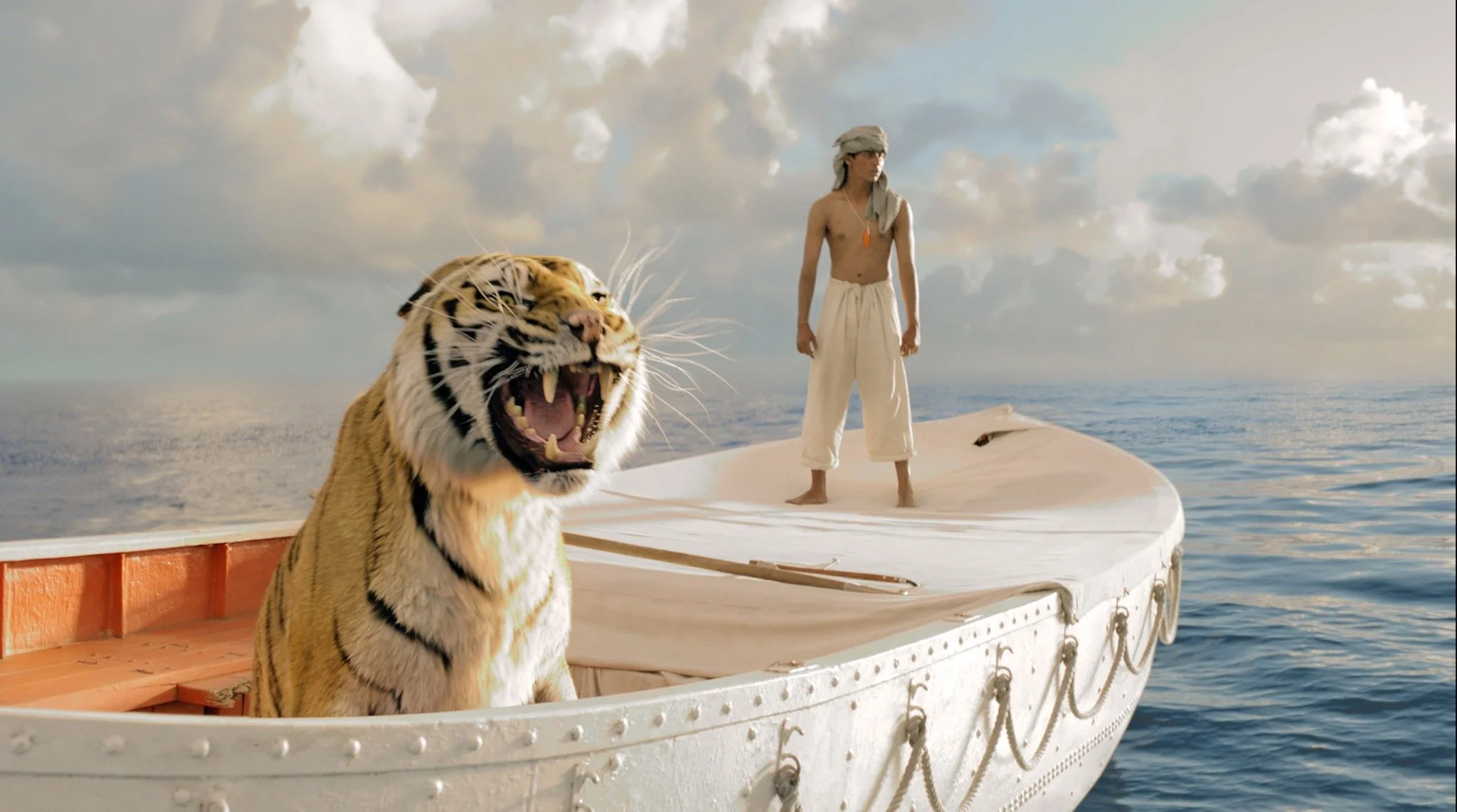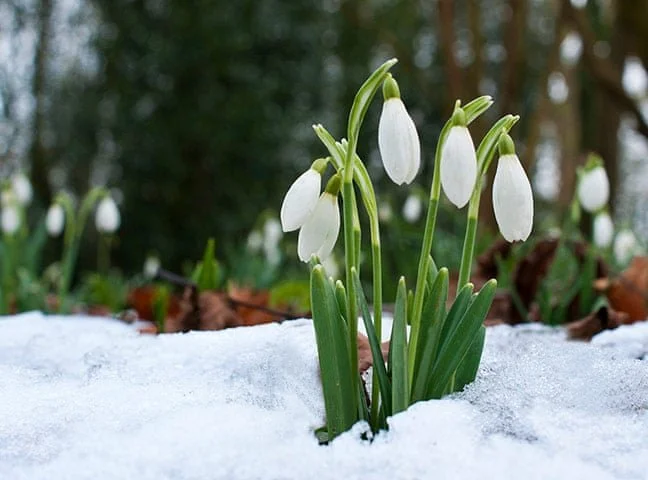… weighing in at punk music’s famous Hope & Anchor pub in 1977, and beyond …
By The Landlord
“There is a crack in everything.
That's how the light gets in.” – Leonard Cohen
“It's difficult in times like these: ideals, dreams and cherished hopes rise within us, only to be crushed by grim reality. It's a wonder I haven't abandoned all my ideals, they seem so absurd and impractical. Yet I cling to them because I still believe, in spite of everything, that people are truly good at heart.” – Anne Frank
“Rules for happiness: something to do, someone to love, something to hope for.” – Immanuel Kant
“Hope is the thing with feathers
That perches in the soul
And sings the tune without the words
And never stops at all.” – Emily Dickinson
In the 1986 comedy-farce feature film Clockwise, Monty Python and Fawlty Towers' John Cleese plays Brian Stimpson, an obsessive time-keeping headteacher of an ordinary comprehensive school who is to make his way to become chair of a headmasters' conference, an unusual honour usually given to those from prestigious private schools. As a punctually fastidious, ramrod-backed, loftily stiff figure who instantly admonishes any pupils and teaching staff for tardiness, the idea of not turning up on time to such an important event seems inconceivable.
Yet his journey undergoes a twisting series of tortuously unfortunate delays, culminating in a broken down car, having to be driven by a teenage schoolgirl, hitchhiking, and many other panic-inducing, exasperating and embarrassing situations. At one point, lost in the countryside, Stimpson ends up in a monastery, where, after losing his own clothes, he finds himself forced to wear a spare monk's robes. After yet further disaster, another travel opportunity dashed, and with the time of the conference rapidly approaching and still many miles away, with head in hands, he sits in the road, and utters the timely phrase:
"It's not the despair, Laura, I can stand the despair. It's the hope."
John Cleese’s troubles are only just beginning in Clockwise
This might be the sort of thing anyone might feel if they have had life-long, and at times highly irrational support of a football club or other sports team, have ever dabbled in betting, or dieting, made New Year's resolutions, have had substantial creative plans, made job applications, pinned ambitions on others, including one's own children, or indeed the response of pets, or have tried to grow vegetables in an inclement, unpredictable climate. All of these scenarios and more, with so many factors constantly out of our personal control, are where hope and despair seem to place us on a constantly pivoting see-saw of joy and disappointment.
Yet hope springs eternal, so they say, but this time, following on from last week's topic, it's more eternity springing into hope. While despair is constantly around us in the news, and despite circumstantial evidence to the contrary, hope still seems to be in our DNA, an unstoppable lifeforce, like a flower shoot pushing up out of the soil into some barren, concrete-paving environment. Hope starts each year, phase or life cycle, and often with that, hope always dies last.
Hope is all about the near or distant future, because at least that's something no one can really predict, where there's a feeling, a desire, a belief, or confidence that something good might happen that here can be expressed in all sorts of ways through the lyrics of song.
Dig around a bit, and there are many signs of it, even if small. Random acts of kindness by strangers, stories about reformed prisoners bringing something back to the community, talented teenagers setting trends in environmental or other projects, or larger, admittedly very slow, but positive incremental changes in legislation, social values and rights.
Along with despair, hope, often feeling more hidden, is also all around us physically, and that's not just in people and plants. In almost every town and city there's usually a Hope Street to be found, and in the UK, often a Hope & Anchor, or Anchor & Hope pub. The famous one in London's Islington, that bedrock sweaty basement of early punk, including where The Damned first played their single New Rose, the anchor, as in many such pub names, has less to do with some nautical piece of weighty metal, more with an older religious connotations, the Cross of Hope, with many variants around the world, taken from the New Testament's Letter To the Hebrews: "We have this as a sure and steadfast anchor of the soul, a hope." Ironic then that the context of this location was where The Damned, The Stranglers or others weighed their own musical anchor.
The Stranglers at the Hope and Anchor basement in 1977
Musically here, there's also desire here for new hope, not just old hope, in that it songs nominated on this topic should ideally not just be timeless classics, but as hope is always about the present, so also more recent material, especially from the last year or so, where there has been an outpouring of optimism in many songs with that tone during 2020 and 2021 to counteract the doom and gloom of world events. When things seem at their lowest, that's when hope always finds new horizons. As the shipwrecked Tamil boy character, stuck in a boat at sea for 227 days with a Bengal tiger, in Yann Martel's Life of Pi puts it “You might think I lost all hope at that point. I did. And as a result I perked up and felt much better.”
Life of Pi. A metaphysical examination of hope and despair
But whether you're shipwrecked at sea, or at the Hope and Anchor, you're bound to be thirsty, and as ever, here at Song Bar there's a big crowd of punters eager to get served, hoping to catch my eye to get the next order in. How might that happen? By contributing something in the bar of banter about the topic of hope. So – who's first?
"“You may say I'm a dreamer, but I'm not the only one," says John Lennon drolly, glancing back at the big crowd around him. John gets a pint for that, and strolls over to chat at a table with Leonard Cohen, Anne Frank, Immanuel Kant and Emily Dickinson, who have already put in their orders.
“Hope smiles from the threshold of the year to come, whispering 'it will be happier'," proclaims Alfred Lord Tennyson, poetry book in hand, and setting the tone for the any new year, so he takes a small red wine.
A bearded figure holding heavy tomes is next. It's only Leo Tolstoy. "“In the midst of winter, I find within me the invisible summer...” And the Russian author wins a large shot of vodka for that hopeful proclamation.
"“If winter comes, can spring be far behind?” chips in poet Percy Bysshe Shelley, with a little bit of Ode to the West Wind, and gets a cognac for that winter warmer line.
Perusing our bookshelves, T.S. Eliot manages to get in a tea order from afar. “The very existence of libraries affords the best evidence that we may yet have hope for the future of man.” Coffee with that?
"Haha!" says Allen Ginsberg. “Poets are damned… but see with the eyes of angels.” Allen's getting his wings with a little whisky.
Francis Bacon, the Renaissance all-rounder, orders a strong coffee (it's amazing what time-travel can achieve), and though his meaning may be different, it neatly fits into what makes for a good night's sleep or otherwise: “Hope is a good breakfast, but it is a bad supper.”
“But, to my taste, while there is tea, there is hope," brightly chips in playwright Arthur Wing Pinero, with a dash of Sweet Lavender, and waving his money, walks away with a nice hot cuppa.
“Where there is no hope, it is incumbent on us to invent it … A man devoid of hope and conscious of being so has ceased to belong to the future,” says Albert Camus quoting variously from The Myth of Sisyphus, the tale of the man who must continuously roll a rock up a hill, and other works. He’s joined by philosopher Søren Kierkegaard who adds, with Fear and Trembling under his arm, that: Hope is a passion for the possible.”
But where there’s hope there’s a round of drinks, and Albert and Søren both leave with a pint each.
“But hope in reality is the worst of all evils because it prolongs the torments of man,” says Friedrich Nietzsche. “I must agree, my friend,” adds John Milton. “Farewell Hope, and with Hope farewell Fear.” It’s a less positive position, but adds to the debate. Is this a wind-up? Probably not, but they at least now have their drinks.
There’s some despair there, but how do we position that against hope? “But what we call our despair is often only the painful eagerness of unfed hope.” says George Eliot, with her own weight novel, Middlemarch, and now a nice hot toddy.
Snowdrops
“Hope is the power of being cheerful in circumstances that we know to be desperate, says G.K. Chesterton, now perking up with his strong tea.
“Absolument, mes amis,” says Victor Hugo, who in the face of hardships, still sees something key in us. “The human soul has still greater need of the ideal than of the real. It is by the real that we exist, it is by the ideal that we live.” His ideal at that moment is a nice glass of wine.
Writer Alain de Botton is scratching his bald head and takes this angle along with his camomile tea. “Hmm, yes. The difference between hope and despair is a different way of telling stories from the same facts.”
Vaclav Havel takes a more historical approach with his facts: “Hope is not the conviction that something will turn out well, but the certainty that something makes sense, regardless of how it turns out.”
Meanwhile Frank Warren, not the boxing promoter, but the man behind the PostSecret postcard project, where people mail their secrets anonymously to a website, pins up this defiantly hopeful remark: “It's the children the world almost breaks who grow up to save it.”
So how might we wind up on this hopeful note? With a genius? Albert Einstein is having a pleasant chat with American author Maxine Hong Kingston. “In a time of destruction, create something,” says Maxine. How true. The mathematician smiles, and adds: “Learn from yesterday, live for today, hope for tomorrow. The important thing is not to stop questioning.”
And over at the piano, there’s a singer and a pianist having a bit of a jam. For those feeling a seasonal chill, Bill Evans is joined by that old crooner Tony Bennett who together bring this rather lovely, and hopeful rendition to warm anyone’s wintry despair with You Must Believe In Spring:
When lonely feelings chill
The meadows of your mind
Just think if winter comes
Can spring be far behind
Beneath the deepest snows
The secret of a rose
Is merely that it knows
You must believe in spring.
So then, it’s time to turn our more than justified hopes on you, learned and loyal readers, contributors and Song Bar punters, for your suggestions of songs about hope, which could hopefully lead to a vast and uplifting array of styles, eras, genres and contexts. Weighing in with his own anchor of hope, I’m delighted to welcome back to this side of the bar, who will pick out playlists from your nominations, the deftly discerning DiscoMonster! The deadline bell will ring at 11pm UK time on Monday, for playlists published next week. We’re always hopeful here at the Bar, but even more so this week.
Hopes fulfilled, at least for now.
New to comment? It is quick and easy. You just need to login to Disqus once. All is explained in About/FAQs ...
Fancy a turn behind the pumps at The Song Bar? Care to choose a playlist from songs nominated and write something about it? Then feel free to contact The Song Bar here, or try the usual email address. Also please follow us social media: Song Bar Twitter, Song Bar Facebook. Song Bar YouTube, and Song Bar Instagram. Please subscribe, follow and share.
Song Bar is non-profit and is simply about sharing great music. We don’t do clickbait or advertisements. Please make any donation to help keep the Bar running:

